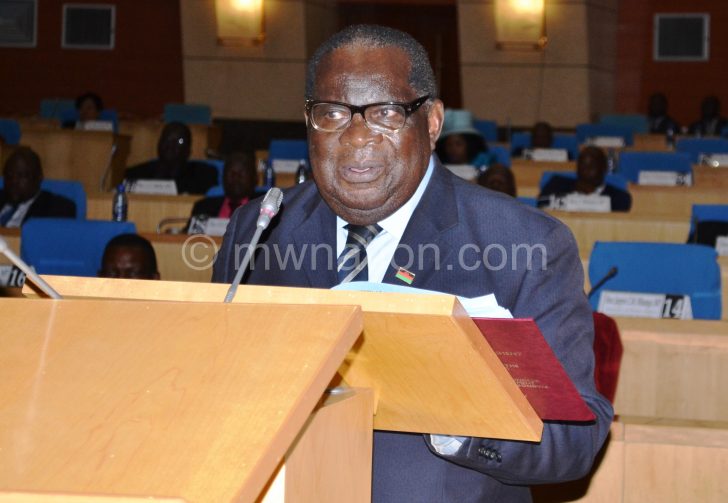Govt records two deficits in Q1—report
Government budgetary operations have recorded two deficits in the first quarter (July to September) of the 2016/17 fiscal year, signalling that expenditure outweighed revenue.
The Reserve Bank of Malawi (RBM) monthly economic reviews show that in July, the first month in the quarter, government recorded a surplus of K15 billion, but later recorded deficits of K34 billion and K23 billion in the subsequent months, respectively.

Treasury officials said the surplus in July was a result of fiscal prudence while in August, the deficit was because government operations started well, but got worse after buying medical drugs and paid arrears, among others.
According to the RBM September Monthly Economic Review, the deficit in September was an improvement from that in August and this feat has been credited to improved outturn due to both enhanced revenue collection by the Malawi Revenue Authority (MRA) and a decline in total expenditures.
On the contrary, the tax bull has been performing above par during the same period, beating the monthly revenue collection projections by about K15 billion after collecting K179 billion.
This was against the projected K164 billion in the first quarter, according to MRA September revenue outturn report.
In the first quarter, government also recorded a deficit of K11 billion in social expenditure following a total expenditure of K112 billion against a projected K96 billion, according to statistics from the Ministry of Finance, Economic Planning and Development.
On overall, within the first quarter, government borrowed from domestic sources a total of K57 billion to finance the fiscal deficits, which is K3 billion shy from the targeted K60 billion net domestic financing (NDF) for the 2016/2017 financial year, according to the budget presented by Minister of Finance, Economic Planning and Development Goodall Gondwe.
The NFD was relaxed from K25 billion in the previous year to finance immediate food purchases in response to the food insecurity crisis occasioned by the El-Nino-induced drought that the country experienced.
In the fourth Malawi Economic Monitor (MEM4), the World Bank has projected that the 2016/2017 fiscal deficit will reach an equivalent of 4.1 percent of gross domestic product (GDP), a decline from 4.3 percent in the preceding year.
The government was operating on deficits for the whole of the 2015/2016 fiscal year with the highest deficit of K29 billion recorded in March 2016.
The Malawi government has been operating without budget support from its bilateral donors which has been frozen due to plunder of public resources at Capital Hill dubbed Cashgate.





